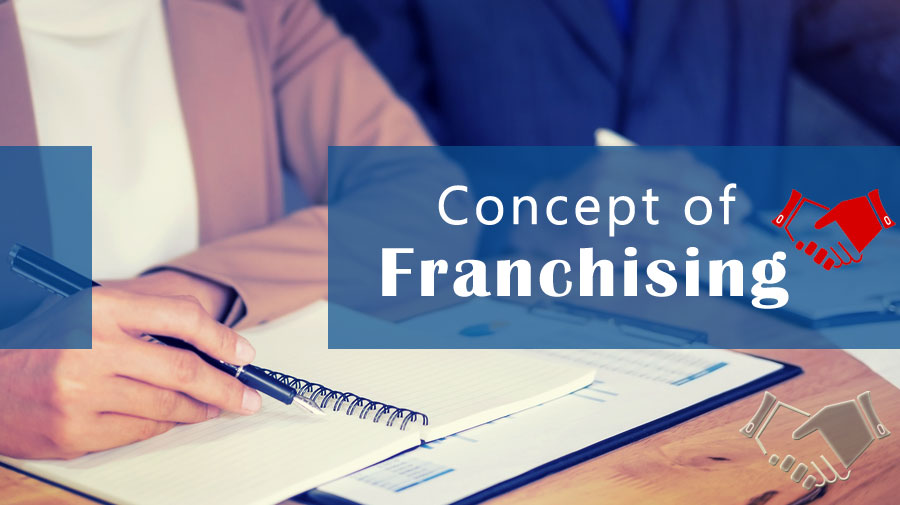
Franchising is a system in business for the selective distribution of products & services under a brand name through outlets owned by independent business owners. It is an opportunity for many people who are willing to take a Franchise and start a business on their own. There are several types of businesses like restaurants, motels, service stations, etc. can be started through franchising.
What is Franchise, Franchisee, Franchisor?
Franchise is the right to use a specific business name & sell its goods, products & services in a specific geographical area, city, or country.
Example: The right to use Pizza Hut, Subway, Masterworks International, etc. name.
A franchisee is the independent owner of a franchise outlet who enters into an agreement with a franchisor (Company).
A Franchisor is a licensing company in the franchise agreement where a Franchisor gives others permission to sell their goods & services. A franchisee must follow the rules & regulations given by a franchisor.
Key Elements of a Franchise Business:
- It is a contractual business agreement between the franchisee (person) & franchisor (company);
- It’s a branded products & services;
- It’s an operation by a businessperson for the purpose of earning a profit;
- A franchisee is strongly monitored by a franchisor so that standard procedures and standardized products & services are maintained.
Franchising Agreement:
Each franchise organization enters into a contractual agreement with each of its franchisees.
Most of the franchise contracts have the same points in common the franchise buyer pays an initial fee to the franchisor and also agrees to pay a monthly percentage of sales. Due to this, a franchisor allows the franchise to sell its products & services.
Both franchisee & franchisor want to succeed and earn money. To do so products & services must be standardized and well managed.
Many franchisees assume they will be their boss. This assumption is only partially accurate because the franchisor has a significant amount of control over the franchisee in several areas. Such areas are:
- Real estate Ownership;
- Territorial Restrictions;
- Cancellation Provision; which gives the power to a franchisor to cancel an arrangement with a franchisee;
- Exclusive Handling; a form of control in which a franchisor requires a franchisee to purchase only supplies approved by the franchisor.
Pros of owning a Franchise:
- Guidance: A person who never owned a business may have problems with managerial ability. By signing an agreement with a franchisor a franchisee will get guidance from a franchisor on how to overcome managerial deficiencies.
- Brand Name: The person who signs a franchise agreement acquires the right to use a nationally or regionally promoted brand name. This identifies the local unit with recognized goods & services.
- Proven Product: The franchisor can offer the franchisee a proven product and method of operating the business. The product & services are known and well-accepted by the public.
- Financial Assistance: Usually start-up cost of a business are high and an investor have limited fund. The sole owner generally has a limited credit rating, making it difficult to borrow needed funds. By joining hands with a franchise company, an individual can secure financial assistance.
Cons of owning Franchise:
- Costs: Franchisees do pay franchise fees and in return, the franchisor provides training, guidance, and other support which would cost money. A franchisee pays for the opportunity to share in these forms of support. If it were possible to earn the same income independent of the franchisor, the investor could save the amount of these fees.
- External Control: In a franchising business, a person loses independence. The franchisors do set some obligations towards business operation like- operating all franchise outlets as a business, must exercising some control over promotional activities, financial records, hiring, services procedures & managerial development. Though these controls are useful but can be unpleasant for a person who is independent.
- Weak Training Programs: In some cases, promoters promise sound training programs for franchisees and never deliver. Sometimes training programs are weak and staffed by trainers who do not have the skills to be a part of business operations.
Every business has advantages and disadvantages. But businessmen love to take risks. The franchising system benefits both franchisor and franchisees if they follow standard procedures and provide good products and services.
